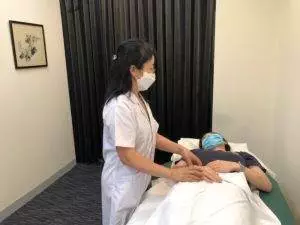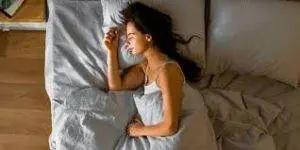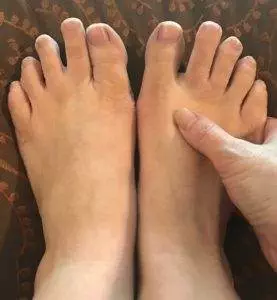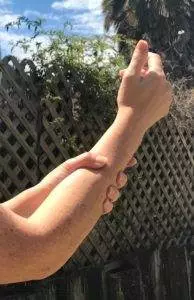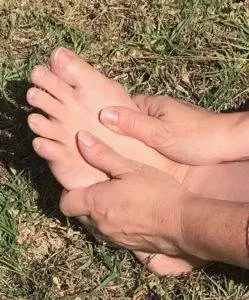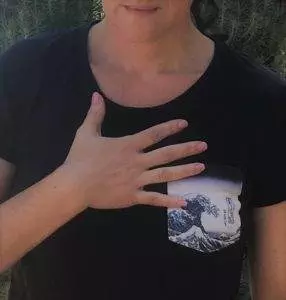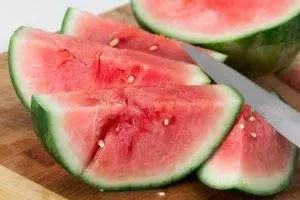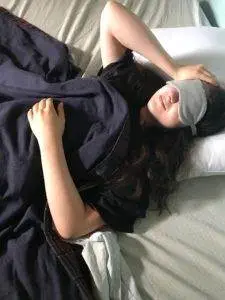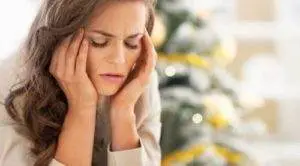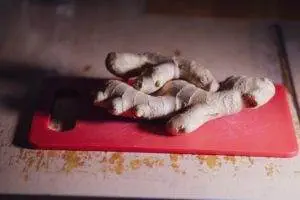By Qineng Tan, L.Ac., Ph.D. and Xiaomei Cai, L.Ac., Ph.D.
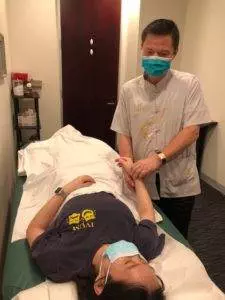
A panic attack is a sudden, overwhelming sense of fear that causes an intense emotional and physical response, often including trouble breathing, heart or chest pain, sweating, and dizziness. One way to get help for panic attacks and relieve the effects of long-term stress is with acupuncture and TCM.
Anyone might have one or two panic attacks in their lifetime. When a person has attacks frequently, they may be diagnosed with panic disorder. Most typically, this disorder arises when a person is in early adulthood, but panic attacks can also occur in children and adolescents. For people who experience panic attacks, quality of life can be greatly reduced, as the haunting worry that another episode may come on unexpectedly at any time may cause them to begin limiting their activities. In some cases, panic disorder with agoraphobia, a psychological condition in which a person is so afraid of entering into situations where they feel unsafe that they begin to avoid going out, go hand in hand together. Panic attacks are also often related to anxiety, depression, and obsessive-compulsive behaviors.
When a person seeks out medical care, panic attack treatment usually involves a combination of cognitive behavioral therapy (CBT) and prescription psychiatric medications like antidepressants (zoloft for panic attack) or tranquilizers. This combination of therapy may help reduce the frequency and severity of panic attacks, but these types of drugs can come with side effects and start a dependency. TCM and acupuncture offer natural remedies for panic attack that work quickly; many patients begin to feel better after their very first treatment.
Top 10 Signs of a Panic Attack
A panic attack comes on suddenly, instilling an intense feeling of dread that typically peaks within ten minutes, then begins to dissipate.
A panic attack is medically defined as involving at least four of these symptoms:
- Accelerated heart rate, palpitations, sensation of heart pounding or racing
- Trembling, shaking
- Sweating, hot flush, or chills
- Feeling that you can’t catch your breath or are choking
- Chest pain or tightness
- Nausea, upset stomach
- Feeling faint, dizzy, light-headed
- Numbness or tingling (paresthesia)
- Feeling detached
- Fear of losing control or dying
The symptoms associated with panic attack are very scary and similar to other, potentially life-threatening conditions, such as a heart attack or an asthma attack. People with panic disorder often feel they must organize their lives around the fear of having another attack. Some people may repeatedly seek out emergency care when in the throes of an attack because they are very seriously afraid that they may be dying.
Panic Attack Causes
The exact cause of panic attacks is not completely understood by medical science. In some instances, panic attacks are brought on by specific psychological triggers, such as having to take a test, flying, or being in a crowded or tight space. Some people experience a panic attack while driving. But many people have panic attacks for no apparent reason, sometimes even being awakened from sleep with a racing heartbeat (nocturnal panic attack or panic attack in the middle of the night). It is believed that some people are more prone to extreme stress responses, and this condition does seem to run in families, so genetics may play a role. The physical signs of stress and anxiety are the body’s way of reacting to danger. The sympathetic nervous system causes the adrenal glands to produce hormones that stimulate that “fight or flight” feeling of energy. When a person has gone through a prolonged period of chronic stress, or experienced a trauma, the system can become unbalanced, and he or she may feel an extreme version of this chemical response flooding the body, even though there is no immediate danger.
How Is Panic Disorder Different From Anxiety?
Panic disorder is considered to be a type of anxiety disorder, but it is differentiated from Generalized Anxiety Disorder (GAD). Panic attacks are similar to anxiety in the sense that both can cause emotional feelings of fear and dread and physical sensations of a fast heartbeat and difficulty breathing. They are both health conditions related to the long term mental and physical effects of stress. The difference is that a panic attack is more extreme in its intensity and lasts for a short period of time, whereas anxiety is a pervasive, uncomfortable feeling that goes on and on.
Panic Attacks During Pregnancy
Pregnancy is an emotional time, and most women have some feelings of worry. However, some women experience more serious anxiety and panic attack while pregnant. These feelings should definitely be addressed, as documented studies have shown that women who suffered panic attacks during pregnancy were more likely to experience preterm birth and/or deliver an infant who is small for their gestational age.
Panic episodes may also manifest during the postpartum period, especially among women who have just given birth to their first child. This may be at least partially due to the sudden fluctuation of hormones that occurs after birth. Acupuncture and natural herbs for anxiety and panic attack offer an effective way of dealing with panic attacks during pregnancy and after.
How to Stop Panic Attacks With Acupuncture
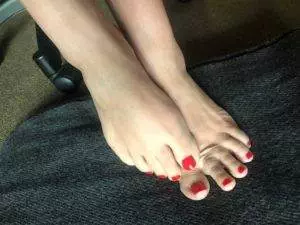
The idea of a mind-body connection is still rather new in western medical thought, but the belief that the physical, emotional, and spiritual are all inextricably intertwined has been part of Traditional Chinese Medicine theory for thousands of years. According to TCM, emotional energy can build up in the body; if it isn’t released, it can cause imbalances.
Fear causes Qi, the life force energy that flows through the body, to move downwards; this is what causes sensations of light-headedness and disorientation. Fear is related to the kidneys, which are involved in the release of adrenaline and cortisol in response to stressors. Anger and frustration are related to the liver, grief is related to the lungs, and worry is related to the spleen. After a thorough consultation to understand the nature of an individual’s panic attack patterns, an acupuncture practitioner may choose points to work upon the appropriate organ systems to encourage the smooth flow of Qi. Acupuncture treatment has been shown to help balance levels of cortisol and serotonin, which will help even out the emotional state and regulate the body’s stress responses.
Herbal supplements and nutrition are key components of comprehensive TCM management of panic attack. Your acupuncturist will likely formulate a specific combination of herbs that will help support the kidneys and other organs, as well as giving directions as to what foods will be most and least beneficial to help resolve the chronic effects of stress underlying the panic disorder.
Top 5 Tips for Calming Down From a Panic Attack
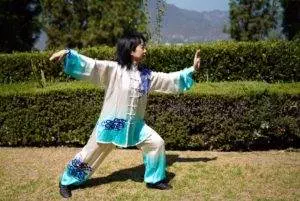
The best help for panic attacks is to focus on breathing. Disciplines that help you learn how to control breathing and be present in the moment, such as meditation, Tai Qi, and yoga, are excellent for helping to prevent a panic attack trigger from leading to a panic attack severe enough to disrupt your life.
- Practice breathing: find a type of breathwork that you find inspiring. It might be a simple meditation app that you use before bed at night, or it might be a challenging yoga practice that takes you outside of your comfort zone. It can be therapeutic to learn to breathe through discomfort so that when you are triggered, you can be more adapted to coping with a panic attack.
- Acupressure: stimulating specific acupressure points on the body can help relieve stress and dissipate panicky feelings. One good point to try for acupressure for panic attack is L-3, sometimes called the “Great Surge,” which refers to big rushes of energy that move up through the body when we feel stressed. This point is located on the top of the foot, between the tendons of the big and second toes, about an inch up from the base of the toes. Pressing deeply into this area and rubbing helps to control feelings of anxiety. This point is useful for times when you are in the middle of something (maybe a Zoom meeting?), as you can use the toe or heel of one foot to press the L-3 point on the other foot.
- Eat foods high in B vitamins: B vitamins support the nervous system, so it’s important to emphasize them in your diet. Foods high in B vitamins include: leafy greens, beans, turkey, salmon, eggs, and nutritional yeast.
- Avoid sugar, coffee, and alcohol. These substances create excess heat in the body, which can contribute to feelings of anger and frustration. Alcohol and panic attacks, and caffeine panic attack can be helped by drinking more water and herbal teas instead.
- Self-talk: Many people with anxiety, depression, or panic disorder are stuck in a loop of thinking negative thoughts. When a panic attack strikes, a person start thinking, “this is a disaster,” or “I’m dying.” Practice telling yourself what to say for preventing a panic attack, such as “this is just anxiety,” or “this will be over soon.” Look for something near you to focus on instead, and ground yourself by naming it.
There may be no simple panic attack cure, but with acupuncture treatment and herbs, good nutrition, exercise, and positive affirmation, it is certainly possible to reduce the frequency and severity of panic attacks.
Acupuncture Near Me to Help for Panic Attacks
If you or a loved one suffer from panic attacks, make an appointment with your doctor for medical advice. You can also seek alternative medicines and or treatments, such as acupuncture and TCM in your area. At Art of Wellness, our doctors have over 30 years of experience helping people overcome stress, anxiety, and panic attacks naturally.
*This article is for education from the perspective of Traditional Chinese Medicine only. The education provided by this article is not approved by FDA to diagnose, prevent, treat and cure human diseases. It should not stop you from consulting with your physician for your medical conditions. Traditional Chinese Medicine is based on Qi, which is an invisible force that usually cannot be observed by modern science. Because science focuses on testing ideas about the natural world with evidence obtained through observation, these aspects of acupuncture can’t be studied by science. Therefore acupuncture and Chinese herbs are often not supported by double-blind, randomized trials, and they are considered alternative medicine therapies in the United States.
